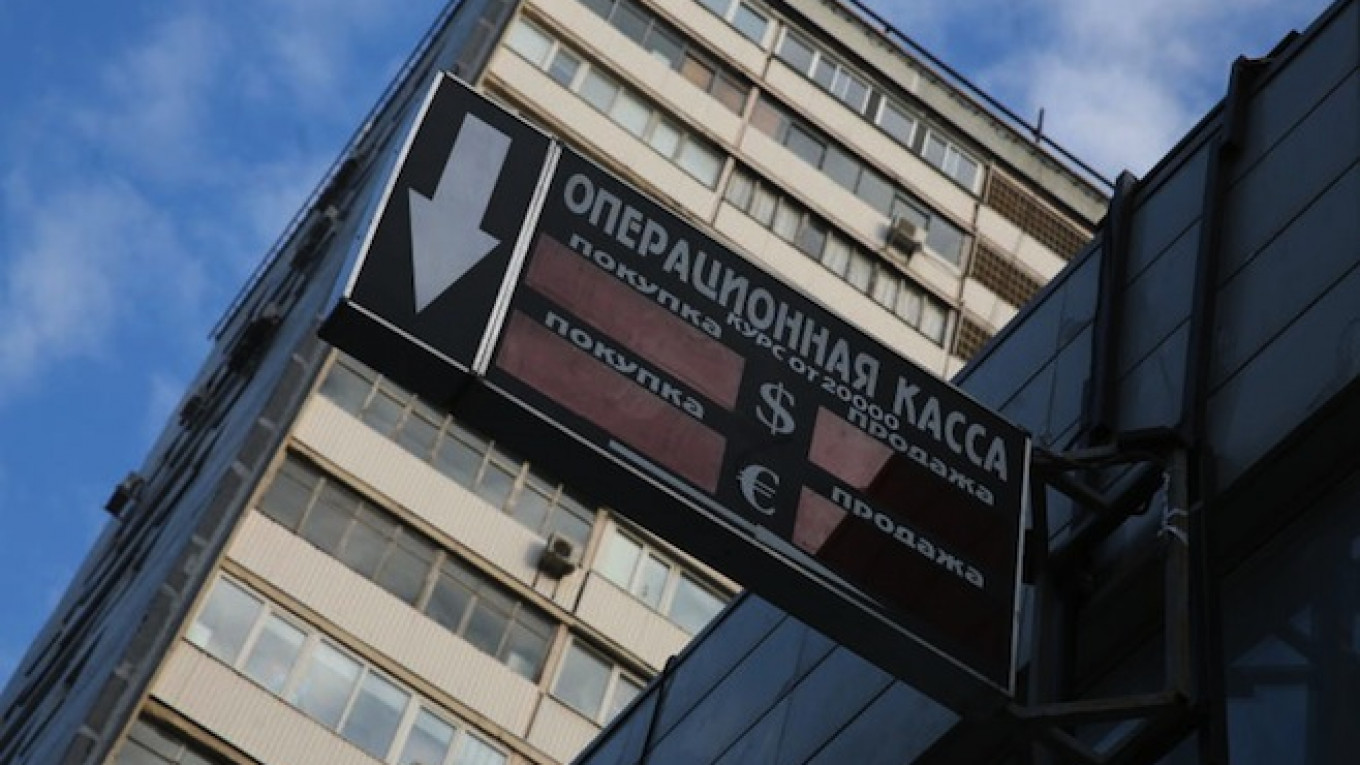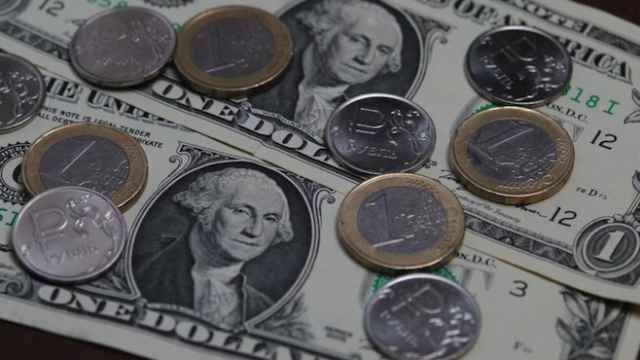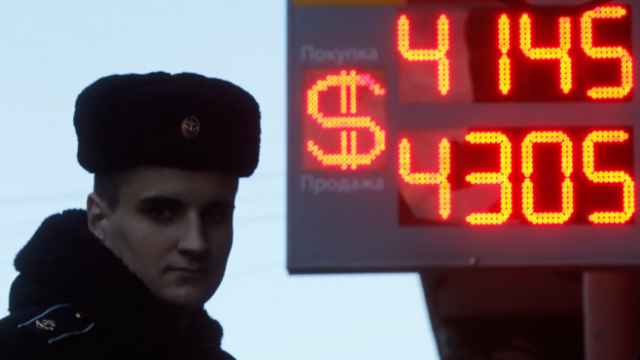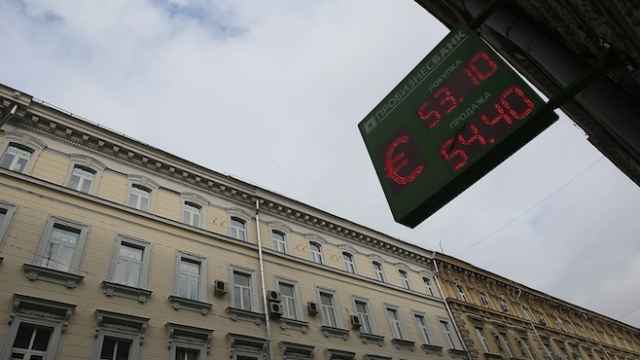The ruble weakened on Friday morning before a key Central Bank meeting at which policymakers are expected to raise interest rates in a bid to rein in the currency's recent plunge.
The ruble fell 1.5 percent against the U.S. dollar to trade at just under 42.5 to the greenback, shortly after midday in Moscow.
The move comes after a volatile day of trading on Thursday in which the ruble hit historical lows before strengthening 5 percent in less than two hours.
There was no clear explanation for the ruble's unexpected rally — with some analysts suggesting traders were trimming their positions before a possible interest rate hike, while others theorized that the Central Bank could have staged a large market intervention in support of the ruble.
The Moscow Exchange said Friday that ruble volatility had caused the stock exchange to record an all-time record in the quantity of derivative trades.
The Russian currency has tumbled over 20 percent against the dollar this year, fueled by Russia risk aversion, a declining oil price and Western sanctions on Moscow for its role in Ukraine.
Rate Hike?
A majority of economists polled by news agencies Reuters and Bloomberg expect the Central Bank to increase interest rates on Friday for a fourth time this year in an attempt to lift the ruble and dampen inflation growth.
The Central Bank said it spent $3 billion of its foreign currency reserves defending the ruble on Oct. 29 — a record single-day spend for October. The bank releases information about market interventions with a two day time-lag.
The Central Bank controls the exchange rate through a trading corridor for the ruble. When the ruble overshoots the corridor's upper edge, the bank begins buying rubles, shifting the boundary by five kopeks every time it commits $350 million of its foreign currency reserves.
The trading corridor moved by 35 kopeks on Thursday, according to the Central Bank, indicating about $2.5 billion of foreign currency reserves were spent.
The Central Bank has burnt through almost $30 billion propping up the ruble this month.
Speculation has swirled ahead of the Central Bank meeting that policymakers will decide to allow the ruble float more freely, a move that could herald further heavy falls for the currency.
A Message from The Moscow Times:
Dear readers,
We are facing unprecedented challenges. Russia's Prosecutor General's Office has designated The Moscow Times as an "undesirable" organization, criminalizing our work and putting our staff at risk of prosecution. This follows our earlier unjust labeling as a "foreign agent."
These actions are direct attempts to silence independent journalism in Russia. The authorities claim our work "discredits the decisions of the Russian leadership." We see things differently: we strive to provide accurate, unbiased reporting on Russia.
We, the journalists of The Moscow Times, refuse to be silenced. But to continue our work, we need your help.
Your support, no matter how small, makes a world of difference. If you can, please support us monthly starting from just $2. It's quick to set up, and every contribution makes a significant impact.
By supporting The Moscow Times, you're defending open, independent journalism in the face of repression. Thank you for standing with us.
Remind me later.






